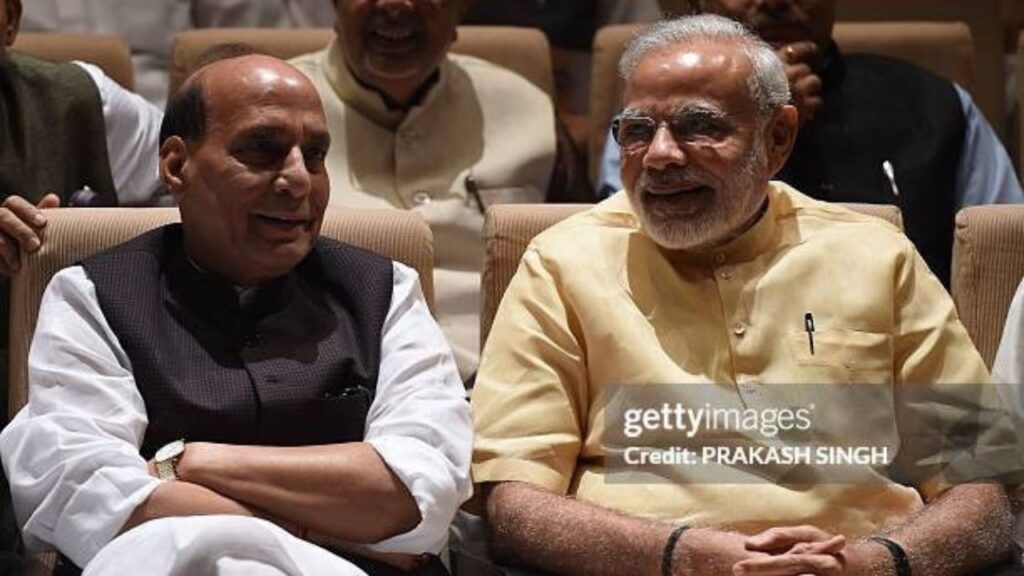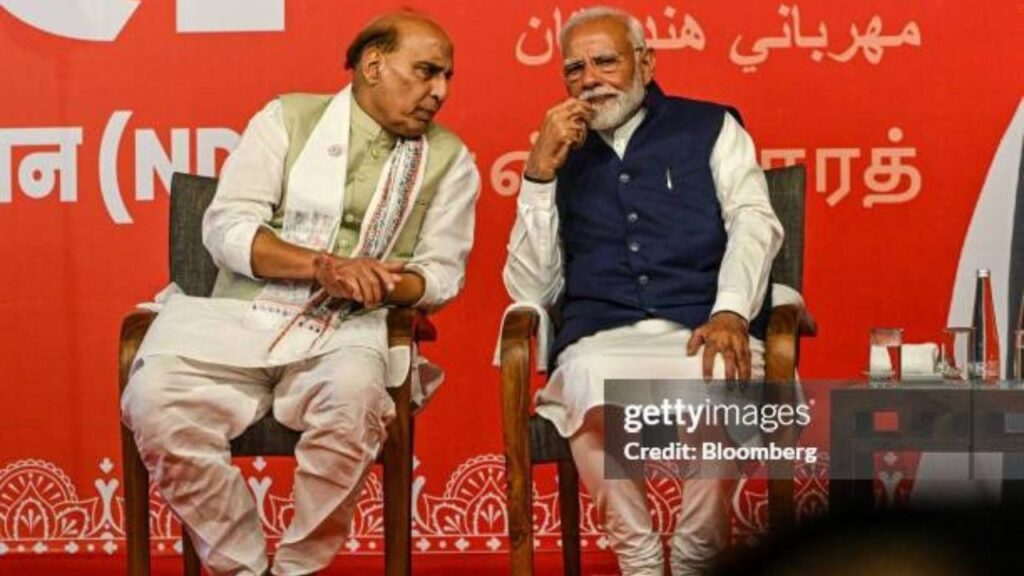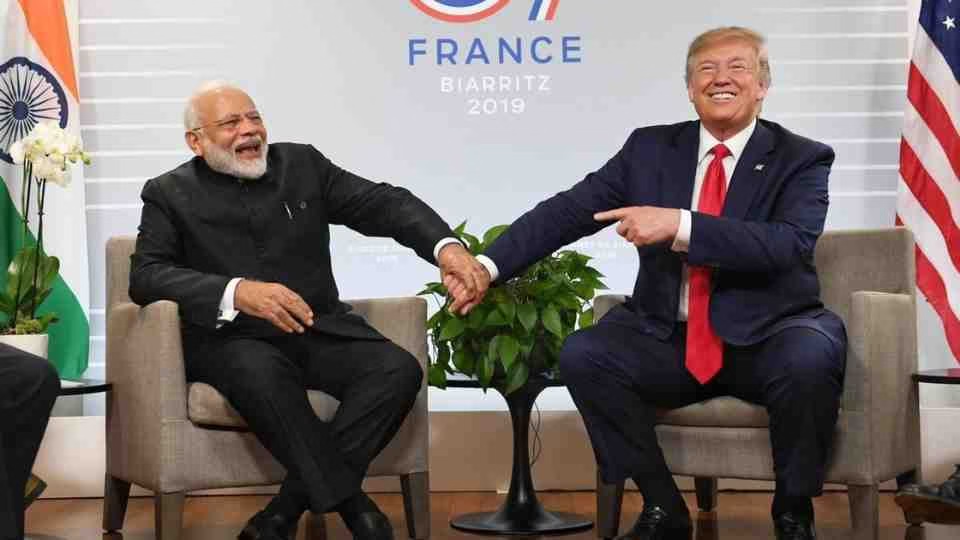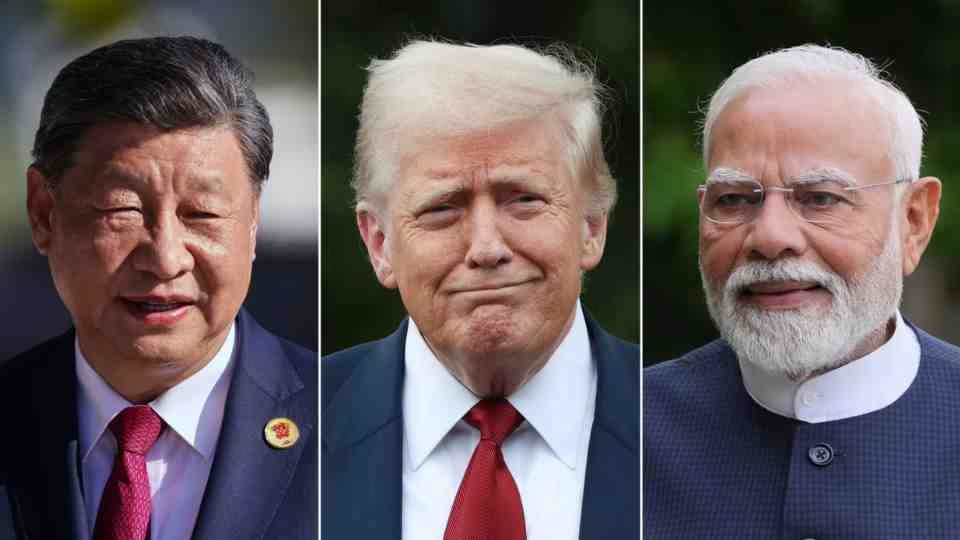Defence Minister Rajnath Singh delivered a thinly-veiled criticism of US President Donald Trump’s tariff policies on Sunday, suggesting that certain global leaders who consider themselves “sab ke boss” (boss of everyone) are threatened by India’s rapid economic progress.
Speaking at an event in Madhya Pradesh, Singh avoided directly naming Trump but made clear references to recent American trade actions against Indian goods. The defence minister accused unnamed parties of attempting to undermine India’s competitive advantage in global markets through punitive tariffs designed to make Indian products prohibitively expensive.

“There are some people who are jealous of India’s rapid development. They think, ‘we are the boss of all.’ They cannot accept how quickly India is moving ahead,” Singh stated, in what appeared to be a direct response to Trump’s recent decision to impose 50% tariffs on Indian imports.
The minister’s comments came as tensions escalate between New Delhi and Washington over trade policies. Singh warned that making Indian-manufactured goods artificially expensive compared to foreign alternatives would inevitably reduce global demand for Indian products, potentially damaging the country’s export economy.
“When goods made by the hands of Indians become costlier than those produced abroad, people around the world will stop buying them,” he emphasized, highlighting the economic implications of the tariff dispute.

Singh’s remarks were made while celebrating India’s defense sector achievements, noting that the country’s defense exports have surpassed ₹24,000 crore, demonstrating the strength and growth of India’s military manufacturing capabilities.
The defense minister’s “boss” reference appears to be a pointed critique of what Indian officials perceive as American attempts to maintain global economic dominance by hindering the rise of other major economies. This diplomatic pushback signals India’s unwillingness to quietly accept trade penalties that it views as unfair and economically motivated rather than based on legitimate security concerns.
The exchange represents the latest chapter in escalating trade tensions between the world’s largest and most populous democracies, with both nations standing firm on their respective positions regarding tariffs and trade relationships.






